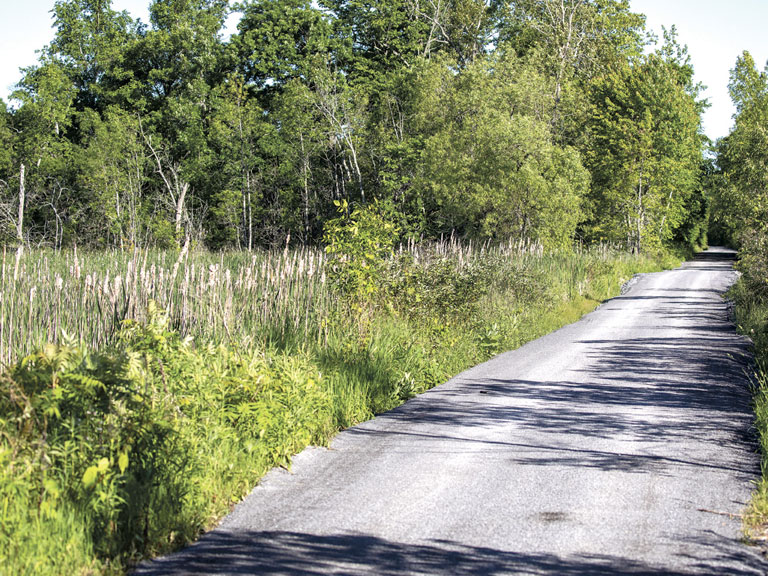County News
No to trail tours

Council says no to commercial use on Millennium Trail
It’s a hard no to commercial tours using the Millennium Trail. Council approved a staff recommendation to disallows such use of the Trail at a committee of council meeting last week.
In April, Prince Edward County Vacations began advertising a service to offer wine and beer tours in six-passenger utility terrain vehicles (UTV), departing from the Waring House and using the Trail to hop from location to location. Multiple UTVs would be deployed for larger parties to facilitate a larger group, such as staff parties, birthday, bachelorette and bachelor parties.
This prospect caused some unease around the County. Hallowell councillor Brad Nieman asked staff to review the 22- year-old by-law governing uses of the Millennium Trail, with a view to heading off this venture.
The resulting report found that recreational use of the Trail is defined as those activities “of a voluntary and leisure time nature that aid in promoting entertainment, pleasure, play, relaxation, or instruction. This excludes services or commercial activities that are provided on the trail that are rendered for a fee or for the benefit of a commercial entity. Staff recommended amending the existing by-law to clarify that no commercial services are allowed on the Trail.”
Several questions arose around the committee table about what actually defines a commercial use. Currently, users are allowed to rent bicycles or gas powered vehicles and use the trail.
Director of Corporate and Legislative Services Arryn McNichol said Shire Hall’s aim was only to prevent a business or individual using the Millennium Trail as part of their business plan to earn profit.
“The intent is not to prevent people from renting a bicycle or an ATV from Belleville, Picton or Wellington and taking that on the trail for recreational purposes,” said McNichol.
The staff report also suggested that further consultation take place and a usage study conducted to understand how users are engaging with the trail and help inform future decisions about how to manage it.
Councillor Bill Roberts worries about current enforcement of rules on the Millennium Trail. He said he had been hiking the trail for the past three weeks and noticed many do not pay attention to the speed restrictions.
“It’s like a NASCAR track out there sometimes,” said Roberts. “So I don’t know that enforcement is working.”
Staff said enforcement currently falls under the OPP’s responsibility.
“At the moment, enforcement is conducted by the OPP and MNRF,” said Albert Paschkowiak, Environmental Services and Sustainability Supervisor. “Last year, there were three events where they did blitzes on the trail and they brought equipment in. But they don’t have the equipment here in the County.”
Councillor Phil St-Jean sought to underline that no changes were being contemplated.
“I verbalize that so that those paying attention understand that we are trying to rectify what we perceive to be a lacking in the current by-law, and a serious concern from a large number of people in our community,” said Councillor St- Jean.
The municipality acquired the abandoned rail line from the Canadian National Railway in 1997 for the purpose of developing a trail system through the County. Today, the Millennium Trail system serves as a County-wide recreational facility for local residents and visitors. The trail corridor is nine feet in width and 46 kilometres in length, and has a total land area of 73.5 hectares. The Trail starts in Carrying Place and winds through the County to Picton and includes three natural core areas and four provincially significant wetlands.
Committee passed the resolution to amend the by-law and it is set to be ratified at the council meeting on June 13.

So now a person unfamiliar with the operation of a UTV can rent one and proceed to various wineries and breweries along the Millennium Trail and consume alcohol. Is that supposedly safer than having a sober, designated driver shuttle these folks around the County? This new regulation does not prevent the rental of the machine, or having a map with all of the wineries and breweries provided, or having the rental company make the arrangements for tastings and lunch reservations. All it seems to have done is prevent the rental company from providing a driver. Will the result of this decision provide for a safer experience on the trail? I think not